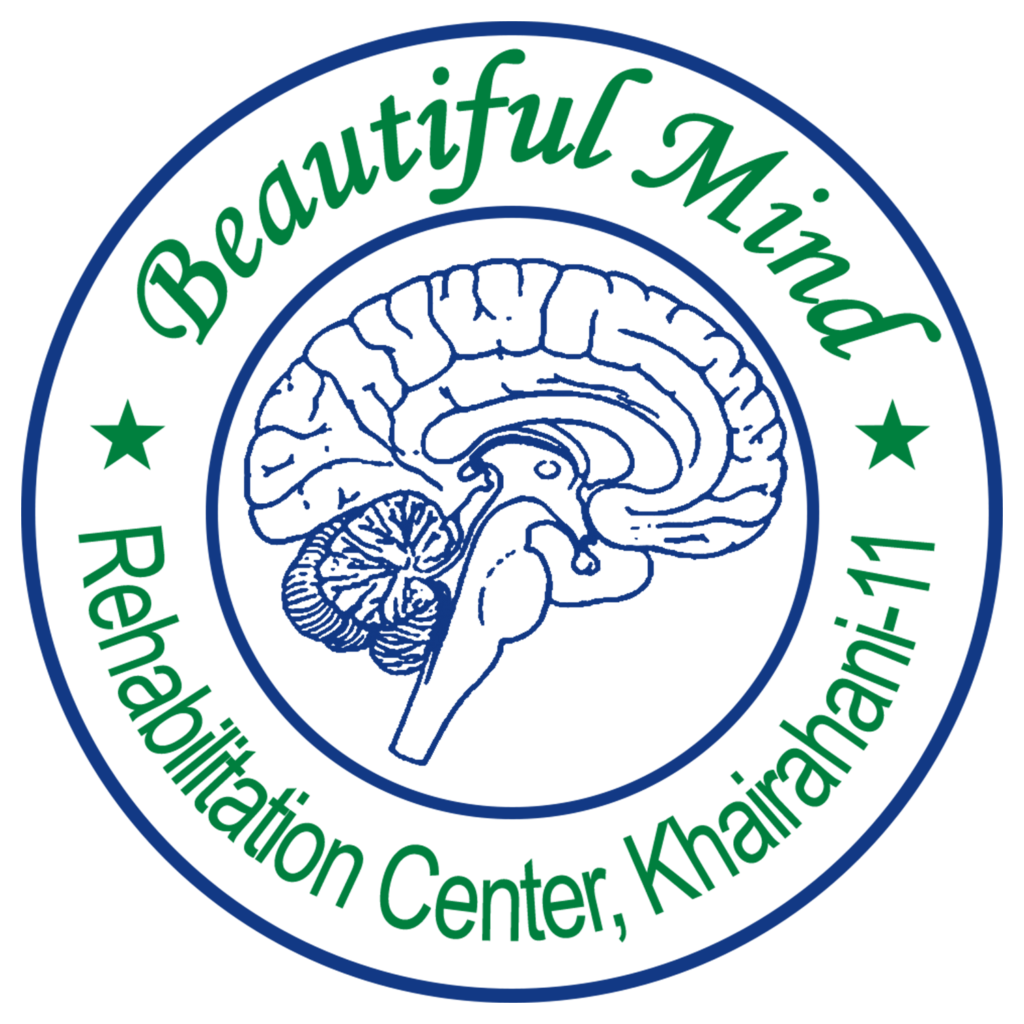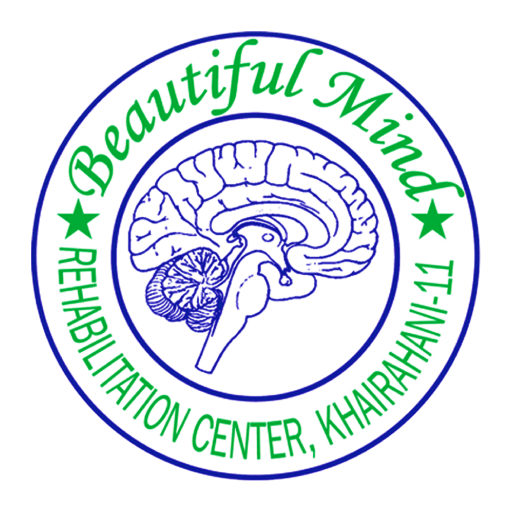The Rise of Mental Health Awareness in Nepal: Stories, Facts, and Change
By Beautiful Mind Institute of Psychiatry — Khaireni-11, Gaidaha, Parsa, Chitwan
Introduction—A Quiet Revolution Finally Takes Root | Rise of Mental Health Awareness in Nepal
Rise of Mental Health Awareness in Nepal: Nepal’s landscapes are changing—both physically and emotionally. Beneath the Himalayas’ grandeur, a silent revolution is unfolding: mental health is no longer taboo. Conversations once whispered are now spoken aloud. Seeking help no longer invites shame, but marks courage.
At Beautiful Mind Institute of Psychiatry, we’ve witnessed the collective shift—from fear and silence toward empathy and action. In this article, we explore this transformation through statistical insights, heartfelt stories, national initiatives, and community-led change—to show why awareness matters now more than ever.

1. The Reality Check—Why Mental Health Awareness Is Critical in Nepal
1.1 A Hidden Epidemic
More than 20% of Nepal’s population struggles with a mental health condition, yet most go untreated. Suicides haunt our communities, with over 6,900 recorded in FY 2022–23—an average of 19 per day.
1.2 Alarmingly Low Workforce
Nepal has only about 200 psychiatrists and fewer clinical psychologists, mostly in urban hubs. In some areas, there are fewer than 0.2 psychiatrists per 100,000 people.
1.3 A Culture of Silence
Mental illness can be seen as “spiritual weakness” or “family shame.” Families avoid disclosure. Symptoms go unaddressed. Without awareness, this cycle continues unbroken.
2. Signs of Progress—How Awareness Is Taking Root
2.1 Government Steps Up
A nationwide campaign now trains health workers to screen for mental illness and distribute free medications across 22 districts, with plans to expand.
2.2 Youth Leading the Charge
Urban youth—especially those aged 23–30—are increasingly speaking about mental health. In 2020, 5.2% of adolescents had mental disorders, with suicidal ideation at 4%. Many now seek help proactively, breaking stereotypes.
2.3 Digital & NGO Innovations
Groups like Happy Minds Health are using mobile tools and social media to spread awareness, reaching 35,000+ Nepalis globally. Teletherapy is also rising, making care accessible to remote regions.
2.4 Stories That Inspire
Survivors of trauma, natural disasters, or academic stress are sharing their stories. Two young earthquake survivors forged life-long friendship through resilience and hope—symbols of mental healing. Public figures like Devi Khadka raise their voices for trauma survivors.

3. Headliners of Change—Beautiful Mind’s Role in Awareness & Healing
3.1 Holistic Care with Heart
Beautiful Mind offers more than medicine—it provides:
- Medication with therapeutic oversight
- Psychotherapy (CBT, DBT, trauma-informed care)
- Addiction rehabilitation, counseling, family therapy
- Occupational therapy, vocational training, recreation
3.2 Holistic & Cultural Integration
We honor Nepali values—integrating mindfulness, local healing traditions, and family-centered care. We address patients’ emotional, spiritual, social, and physical needs in one cohesive plan.
3.3 Education & Community Outreach
Our initiatives include:
- Awareness workshops for schools, workplaces, and communities
- Home visits and telepsychiatry for post-discharge follow-up
- Training psychology interns and local counselors.
4. Voices from the Ground
“One in Nepal thinks having a mental health issue means ‘pagal bhayo.’ It will take time, but youth are starting to take this more seriously.”
— Reddit user, r/MentalHealthNepal
Youth storytelling, blogs, and forums are being used to de-stigmatize conversations—a quiet but powerful shift.
Take the story of Rina, a 20-year-old from Bharatpur: she was anxious and draining under university pressures. Early intervention at Beautiful Mind—counseling, yoga therapy, and sleep help—prevented potential dropout, and helped her heal with dignity.

5. Mental Health: A Bridge to National Wellness & Productivity
- Returns on mental well-being include improved academic performance, stronger focus at work, reduced substance misuse, and lower family conflict.
- Awareness programs ease the economic burden, reduce suicide, and foster resilience nationally.
6. Barriers to Mental Health Awareness
- Stigma and misinformation
- Centralized services, leaving rural regions underserved
- Policy gaps—mental health laws exist but need enforcement
- Unregulated online providers, which can confuse or harm youth
7. What Works—and What Still Needs to Be Done
Steps forward:
- Expand community-based services through integration into primary healthcare
- Train more professionals—psychologists, psychosocial counselors, social workers
- Work with schools and workplaces on mental wellness education
- Invest in awareness campaigns that blend tradition and modern care
Beautiful Mind’s blueprint:
- Holistic, family-inclusive treatment
- Training mental health workforce
- Community outreach and de-stigmatizing storytelling
- Telepsychiatry to reach remote Nepal
8. A Future with Awareness, Empathy, and Healing
Imagine a Nepal where:
- Mental health education begins in school
- Families welcome therapy through understanding
- Seeking a psychiatrist doesn’t shame—it empowers
- Remote communities access compassionate care
- Youth lead mental wellness conversations online and offline
That’s the future Beautiful Mind and countless advocates are building.
🌐 Learn more: https://beautifulmind.com.np/
📍 Visit Us: Khaireni-11, Gaidaha, Parsa, Chitwan, Nepal
📞 Call Us:
- +977-98550945843 (Hira Ale Magar)
- +977-9855094582 (Ansuda Poudel)
- +977-9855094584 (Kamal Sharma Bhusal)
Conclusion—Awareness Is the Lifeline
The rise of mental health awareness in Nepal is not just an idea—it’s a movement. It is born of shared pain, community activism, empathetic care, and forward-thinking institutions like Beautiful Mind Institute of Psychiatry. This story is ours to write—rooted in hope, grounded in service, and reaching toward a mentally healthy Nepal.
Contact Beautiful Mind Institute of Psychiatry
🗺 Location: Khaireni-11, Gaidaha, Parsa, Chitwan, Nepal
📞 Call: +977-98550945843 | +977-9855094582 | +977-9855094584
🌐 Website: beautifulmind.com.np
FAQs with Detailed Answers
1. What is mental health awareness?
Mental health awareness is the ongoing effort to reduce stigma, educate people about mental illnesses, promote emotional well-being, and encourage early intervention. It ensures people understand that mental health is just as important as physical health.
2. Why is mental health awareness important in Nepal?
In Nepal, mental health awareness is critical because stigma, lack of education, and limited resources prevent many from seeking help. Awareness encourages understanding, acceptance, and access to professional care.
3. What are the common mental health issues in Nepal?
Depression, anxiety disorders, substance dependency, post-traumatic stress disorder (PTSD), and bipolar disorder are among the most common, often worsened by poverty, migration stress, and social isolation.
4. How has mental health awareness grown in Nepal in recent years?
Thanks to NGOs, social media campaigns, and institutions like Beautiful Mind Institute of Psychiatry, mental health conversations are becoming more open, with more people seeking professional help than ever before.
5. What role does Beautiful Mind Institute of Psychiatry play in raising awareness?
We provide education, therapy, rehabilitation, and community programs, breaking stigma while offering compassionate, professional psychiatric and psychological care.
6. Is there still stigma around mental health in Nepal?
Yes. While progress is being made, many people still view mental illness as a weakness or moral failing, which discourages open conversations and treatment.
7. How does stigma affect people’s willingness to seek help?
Stigma can lead to denial, shame, and fear of discrimination, causing individuals to hide symptoms or delay getting professional care until conditions worsen.
8. What are some signs someone may be struggling with mental health?
Persistent sadness, withdrawal from social life, changes in eating or sleeping habits, irritability, fatigue, difficulty concentrating, and loss of interest in activities.
9. What are the barriers to mental health care in Nepal?
Lack of awareness, shortage of trained professionals, high treatment costs, rural inaccessibility, and cultural beliefs that discourage therapy.
10. How can schools in Nepal support mental health awareness?
By integrating emotional learning into curriculums, providing school counselors, creating anti-bullying campaigns, and training teachers to spot early warning signs.
11. Does social media help or harm mental health awareness?
Both. Social media spreads awareness and connects people to resources, but it can also contribute to unrealistic comparisons and cyberbullying if not used mindfully.
12. Are mental health services accessible in rural Nepal?
Unfortunately, services are scarce in rural areas, though telepsychiatry and community outreach programs are slowly improving accessibility.
13. How is the younger generation changing the conversation on mental health?
Young people are more vocal, willing to seek help, and use digital platforms to normalize mental health discussions in Nepal.
14. Can traditional and modern approaches to mental health coexist in Nepal?
Yes. While modern psychiatry offers evidence-based treatment, traditional practices can provide cultural comfort, as long as harmful myths are addressed.
15. How does economic hardship affect mental health in Nepal?
Financial instability increases stress, depression, and anxiety, especially for families struggling with unemployment and migration-related challenges.
16. What role does family support play in recovery?
Strong family support improves recovery rates, reduces relapse risk, and provides emotional stability during treatment.
17. How can employers in Nepal support workplace mental health?
By offering mental health days, stress management workshops, counseling services, and creating non-judgmental workplace environments.
18. What is the connection between physical and mental health?
Poor mental health can lead to physical issues such as weakened immunity, chronic illnesses, and unhealthy habits, while physical illness can also trigger mental distress.
19. How does Beautiful Mind Institute approach holistic care?
We combine medical treatment, psychotherapy, occupational therapy, and community support for complete healing—addressing mind, body, and environment.
20. Are there government initiatives for mental health in Nepal?
Yes, but they are limited. The government has mental health policies, but funding, training, and implementation remain insufficient.
21. How can individuals help raise mental health awareness?
By talking openly, challenging stigma, supporting friends and family, sharing credible resources, and participating in awareness events.
22. What myths about mental health still exist in Nepal?
Common myths include “mental illness is caused by evil spirits,” “only weak people have mental health issues,” and “therapy is only for severe cases.”
23. Why is early intervention important?
Early detection prevents conditions from worsening, improves treatment outcomes, and reduces long-term costs.
24. Can mental illnesses be completely cured?
Some conditions can be resolved entirely, while others can be effectively managed with the right combination of therapy, medication, and lifestyle changes.
25. How does gender affect mental health in Nepal?
Women often face additional stress from domestic violence, gender discrimination, and economic inequality, increasing their vulnerability to depression and anxiety.
26. What is the link between addiction and mental health?
Substance abuse can both cause and be caused by mental health issues, requiring integrated treatment for both conditions.
27. How important is mental health education in preventing suicide?
Very important—education reduces stigma, encourages people to seek help early, and equips communities to recognize and respond to warning signs.
28. Can children and teenagers experience mental illness?
Yes. Children and teens can experience depression, anxiety, ADHD, and trauma-related disorders, often requiring specialized approaches.
29. How do cultural values influence mental health in Nepal?
Cultural values can both help and harm—community bonding offers support, but social pressure to “maintain honor” can suppress open discussion of mental struggles.
30. What are the warning signs of suicide risk?
Talking about hopelessness, withdrawing from friends, giving away belongings, sudden mood changes, and increased substance use.
31. What resources does Beautiful Mind Institute provide for crisis intervention?
We offer 24/7 support lines, emergency psychiatric care, and connections to rehabilitation services for those in urgent need.
32. Can therapy help without medication?
Yes. Many people benefit from talk therapy, counseling, and lifestyle changes without medication, though some conditions require a combination.
33. How do we encourage men in Nepal to seek mental health help?
By challenging harmful masculinity norms, sharing male role models who advocate for mental health, and offering confidential services.
34. What’s the future of mental health awareness in Nepal?
The future is promising—digital platforms, youth activism, and growing institutional support are paving the way for a more open, supportive society.
35. How can I get help from Beautiful Mind Institute of Psychiatry?
You can visit our center, call our dedicated numbers, or reach out via our website.
📍 Visit Us: Khaireni-11, Gaidaha, Parsa, Chitwan, Nepal
📞 Call Us:
+977-98550945843 (Hira Ale Magar)
+977-9855094582 (Ansuda Poudel)
+977-9855094584 (Kamal Sharma Bhusal)
🌐 Website: https://beautifulmind.com.np

















